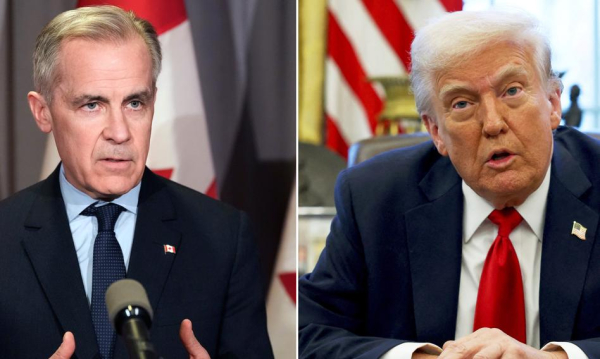The Canadian government has suspended the digital services tax and is returning to negotiations with the U.S. on a trade deal. Last Friday, U.S. President Donald Trump announced that he was breaking off trade negotiations with Canada because of the tax.

“The Government of Canada is conducting complex negotiations with the United States on a new economic and security partnership (…) In support of these negotiations, Finance Minister Francois-Philippe Champagne announced that Canada will suspend the Digital Services Tax (DST – PAP) pending a mutually beneficial broad trade agreement with the United States. As a result, Prime Minister (Kanday Mark) Carney and President Trump have agreed that the parties will resume negotiations with the aim of concluding them by July 21,” the government said in a statement published on Sunday night.
This means that the collection of the digital platform tax, which was due to take place on Monday and has been in force since last year, has been suspended. Champagne is expected to introduce legislation to repeal the DST law soon.
The tax was announced in 2020 due to the fact that many international companies operating on digital platforms do not pay tax in Canada on income obtained from selling their services to Canadians. The government in Ottawa wanted such issues to be regulated in an international agreement, and until such an agreement is reached, the DST Act was to ensure the collection of the tax.
“In negotiating a new economic and security relationship between Canada and the United States, the new Canadian government will always be guided by the benefits of the agreements in the best interests of Canadian workers and businesses. Today’s announcement supports the resumption of negotiations with a deadline of July 21, as set at the G7 leaders’ summit in Kananaskis in June,” Carney said, as quoted in the release.
Last Friday, Foreign Minister Anita Anand stressed in an interview with CTV that “negotiations are held behind closed doors for a reason (…) and we would be in a worse position if we shared our strategy with the media.”
Trump breaks off talks
Trump’s break-off in the talks came less than an hour after Bloomberg reported on Friday that the Canadian Treasury would not abandon plans to start collecting the tax on June 30.
The Canadian DSA was to be 3% of revenues earned from Canadian users of digital platforms and is similar to the tax applied by countries such as the United Kingdom and France. The tax applies to companies that generate revenues of at least C$20 million in Canada. These companies were to file a tax return by Monday, and the tax was to be charged retroactively, from 2022, and apply to companies such as Airbnb, Amazon, Google, Meta and Uber. By the end of June, American companies were due to pay the equivalent of $2 billion, Canadian media reported. According to estimates, the tax was to bring in C$7.2 billion to the Canadian budget over five years.
On Friday, Trump also criticized Canada’s supply management system for dairy and poultry production quotas, which has been a point of contention in Canada-US relations for years. This time, Trump accused Canada of imposing tariffs of 400 percent on American agricultural products. In fact, these products are not subject to tariffs in Canada under CUSMA, the free trade agreement between Canada, the US and Mexico, which Trump signed during his first term. Dairy products, on the other hand, are subject to Canadian tariffs when their imports exceed the agreed volumes, Canadian media recalled.
From Toronto Anna Lach (PAP)
lach/ akl/